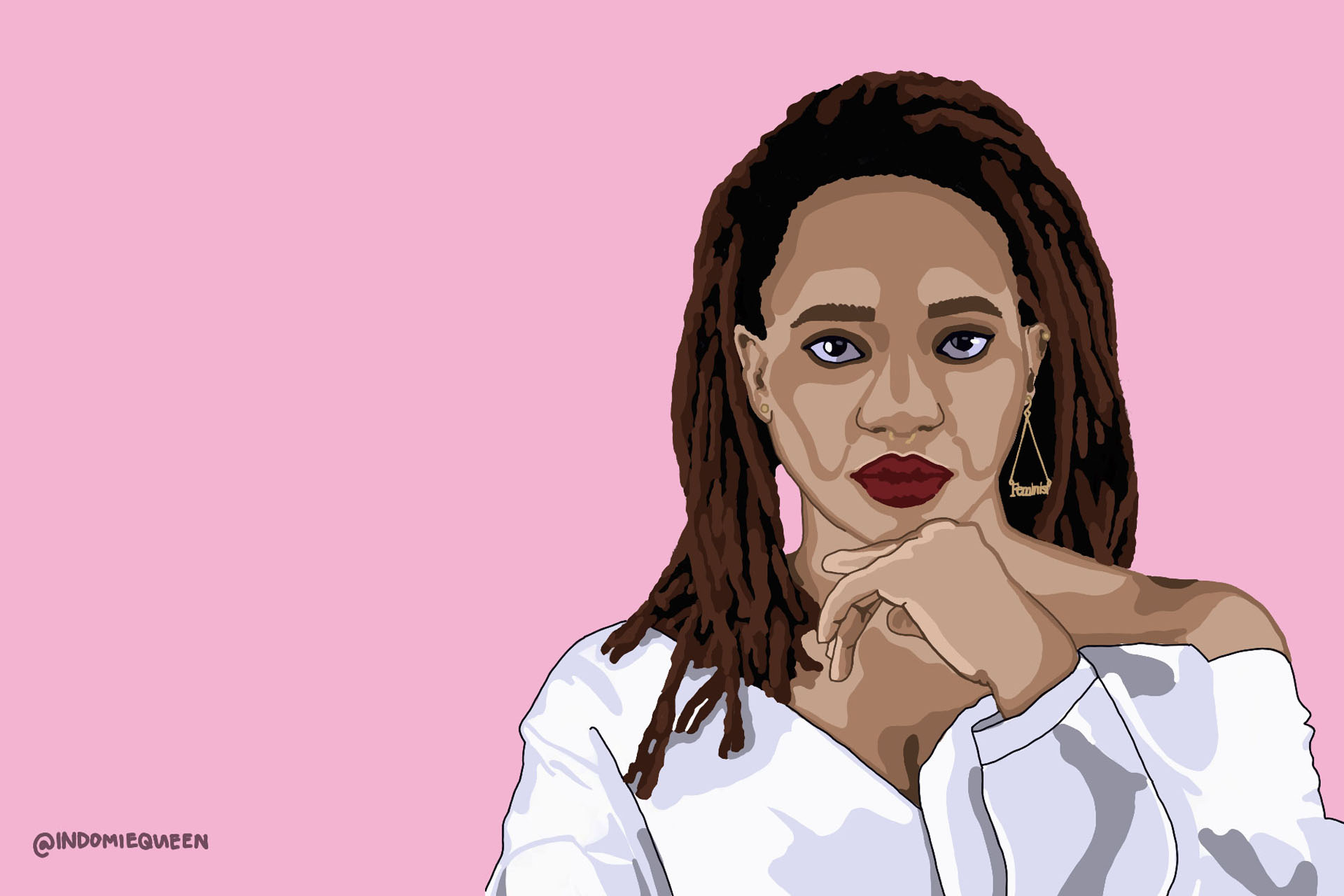In celebration of International Women’s Day, BA (Hons) Media Studies student, Isabel Gregory has written an ode to Nigerian filmmaker, Uyaiedu Ikpe-Etim.
By Isabel Gregory
As LGBTQ+ History month ends and in celebration of International Woman’s Day, it is only appropriate to recognise and appreciate those who have represented the queer community and females this year. Numerous women have spoken up and positively impacted these communities through their work, making it hard to single out one extraordinary woman. However, the Nigerian filmmaker, Uyaiedu Ikpe-Etim, has undoubtedly left a strong impression on me. Despite receiving backlash from people in power regarding her LGBTQ+ activism and film-making, she remains a strong-willed and quintessentially inspirational feminist.
During my daily scroll on Twitter, I stumbled upon a tweet promoting a Nigerian lesbian film trailer. Whilst some may argue that lesbian cinema is nothing new in the West, something within my limited knowledge of African politics convinced me otherwise. After acknowledging this phenomenal contribution to women’s rights in Nigeria, I decided to look further into this production. Ikpe-Etim’s directorial debut film Ifẹ́, meaning “love” in Yoruba, tells the story of two Nigerian lesbians and the struggles they face being gay in a conservative country. Due to the Christian and Muslim influences in this highly religious society, there are still oppositions towards homosexuality in Nigeria and 29 other African countries (BBC, 2020)1. Therefore when Ikpe-Etim and her producer, Pamela Adie, announced the film’s release, they were threatened with a 14-year jail sentence and state censorship for “encouraging homosexuality” (BBC, 2020)2. Through her hard work, she has given a voice and represented Nigeria’s minority communities, especially the African LGBTQ+ community. Ikpe-Etim and Adie decided to release the film at the Toronto LGBT Film Festival and screen it at the Leeds Film Festival, avoiding censorship (Wiki, 2020)3. Due to the film’s unavailability online, I am yet to see it. But I am not-so-patiently waiting for its online release. (I have watched the trailer ten times).
As a media studies student, I have a range of different interests within the media industry. Whilst I prepare to graduate next year with skills in digital marketing and product design, I also aim to branch out and continue to pursue other creative hobbies like digital illustration and camera work. As I look to the future, I plan to implement Ikpe-Etim’s positive mindset and feminist approach to her work. More so than ever, I am inspired to create digital illustrations and improve my marketing knowledge in a way that can benefit people of colour and the LGBTQ+ communities. I want to be a woman who pushes conversation boundaries and brings about change in more ways that one. Now that I know about Uyaiedu Ikpe-Etim, I am excited to follow her work and watch her grow into an even more successful woman.
Follow my digital illustration Instagram page (@indomiequeen) if you are interested in seeing some diverse art by a woman of colour!
Sources:
[1] BBC. (2020). BBC 100 Women 2020: Who is on the list this year? Available from: https://www.bbc.co.uk/news/world-55042935 [Accessed 3 March 2021].
[2] BBC. (2020). The Nigerian filmmakers risking jail with lesbian movie Ife. Available from: https://www.bbc.co.uk/news/world-africa-54070446 [Accessed 3 March 2021].
[3] Wikipedia (2020). Uyaiedu Ikpe-Etim. Available from: https://en.wikipedia.org/wiki/Uyaiedu_Ikpe-Etim [Accessed 4 March 2021].
IMAGE CREDIT: BA (HONS) MEDIA STUDIES STUDENT, ISABEL GREGORY

